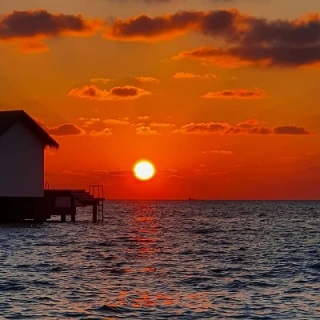India must have a strong Maldives strategy in place notwithstanding the election results in the archipelago with which New Delhi shares maritime border. The first round of the presidential elections has not been encouraging for the incumbent President Ibrahim Solih, who secured less than 40 per cent votes. No candidate has managed to secure 50 per cent votes, necessary to form the government.
The Progressive Party of Maldives (PPM)-People’s National Congress (PNC) coalition candidate Mohamed Muizzu, considered pro-China took the lead with 46 per cent votes in the first round of the elections held earlier this month. The second run-off round is scheduled for September 30.
Muizze has announced unconditional support to former President Abdulla Yameen, currently serving an 11-year term in jail. The Maldivian Supreme Court barred Yameen from contesting elections.
After turbulent ties under Yameen, the architect of the “India Out” campaign, India-Maldives’ ties improved significantly under Solih, who has been vocal about the India First policy for Male.
“India needs to play its cards well. Whatever the outcome of the elections, New Delhi must continue to focus on Maldives. One of the ways to build stronger and long term ties with Maldives is by boosting connectivity,” Dhanuraj D, chairman, Centre for Public Policy Research, told India Narrative.
Prime Minister Narendra Modi on his first overseas visit after taking oath for his second term, visited Maldives on a state visit in June 2019. In 2022, Solih, along with a 45 member delegation comprising senior ministers and business heads, paid an official visit to India.
Maldives is not only India’s key maritime neighbour in the Indian Ocean Region (IOR), it occupies a special place in Modi’s vision of SAGAR or ‘Security and Growth for All in the Region’ and the ‘Neighbourhood First Policy.’
Dhanuraj added that people-to-people contact must be increased between the two countries for sustained ties. “India must also continue with its financial assistance to the nation and stick to timely and professional execution of infrastructure projects,” he said, adding that the archipelago must be brought in India’s tourism strategy by creating a circuit much like Sri Lanka.
“While the government to government dealings have been on, it is time India expands people to people contact,” Dhanuraj said, adding that the trust deficit, which exists in the island nation towards India, must be worked on. India can also play a more prominent role in supporting the all-important health and education sectors of the archipelago nation.
Last year, India extended $100 million to the Maldives in the form of budgetary support to help Male address the economic challenges.
However, the Observer Research Foundation in a report noted that growing political fragmentation has only compelled politicians to continue invoking nationalist sentiments. “In a highly competitive presidential race, every candidate has tried to overshadow the other by criticising India and Solih’s foreign policy,” it said.
With the world focus now shifting to the developments in the Indo- Pacific region, India must increase its engagements with other island nations located on the Indian Ocean, such as Seychelles and Mauritius.
Even as these nations are smaller in size, they hold immense significance in the geopolitical contours of the region due to their location.
India and Maldives have traditionally had deeper ties with New Delhi being among the first countries to develop diplomatic ties with Male but under Yameen, relations between the two had nosedived.
“Its important to keep engagements on and complete he ongoing projects withing the stipulated time,” Dhanuraj said.
Also read: Will India light up Maldives’ path to energy security, renewables?




















